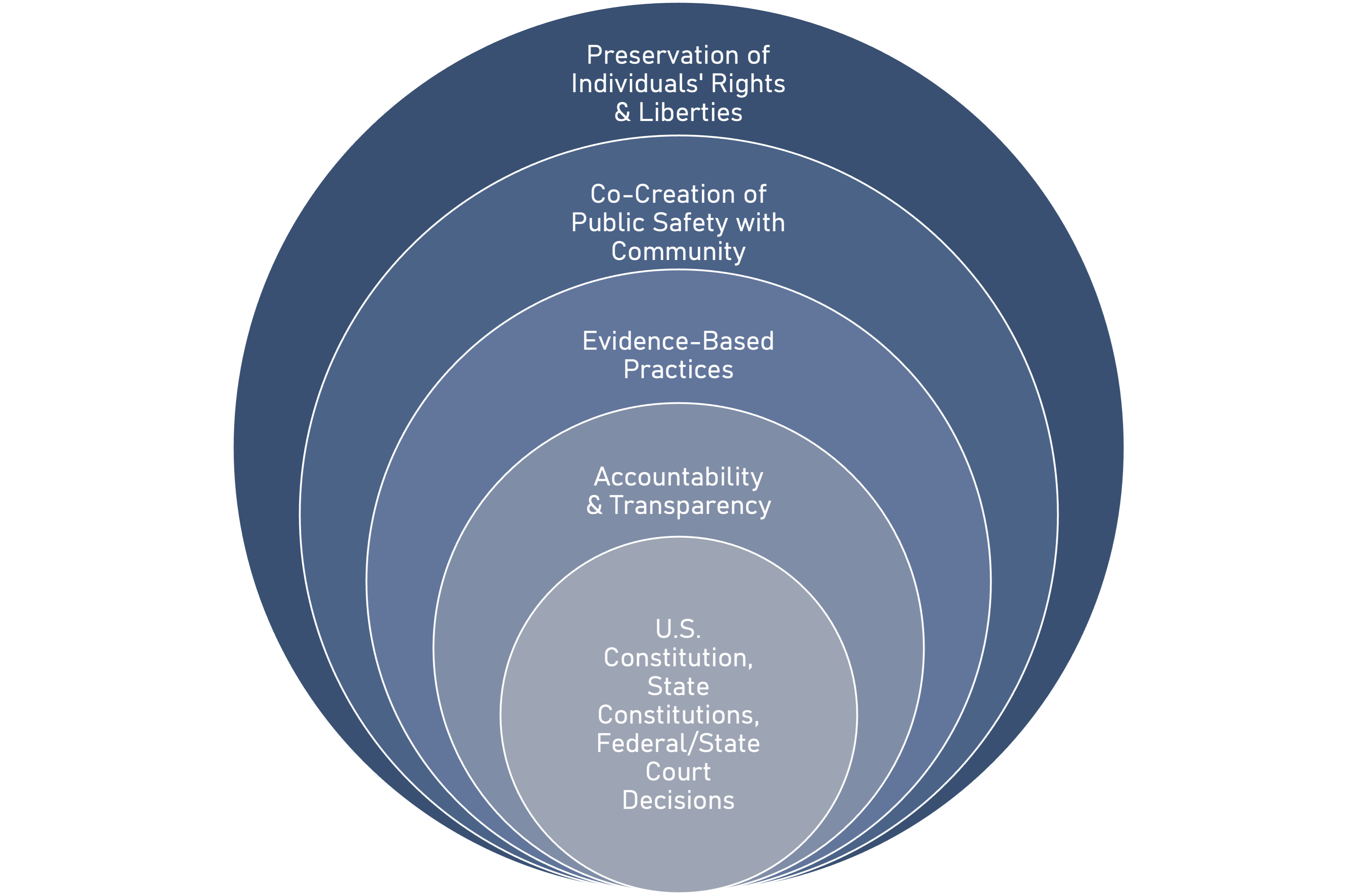Understanding the Foundations of Constitutional Policing
Constitutional Policing is defined as policing conducted within the parameters of the U.S. Constitution, state constitution(s), and federal and state court decisions that define roles and responsibilities of law enforcement agencies and personnel in terms of everyday practices.
Constitutional policing provides a framework to ensure fair, impartial, and effective enforcement of the law that is consistent with constitutional principles, democratic values, and community expectations. It ensues when law enforcement officers respect, value, and uphold the rights and freedoms granted by the U.S. Constitution and other legal requirements to all people in this country.
What the Field is Thinking

“Aligning policing goals with constitutional values encourages proactive crime prevention, promotes conflict resolution, and fosters trust and collaboration with the community.”
Arif Alikhan, Former Director of Constitutional Policing and Policy, Los Angeles Police Department, California

